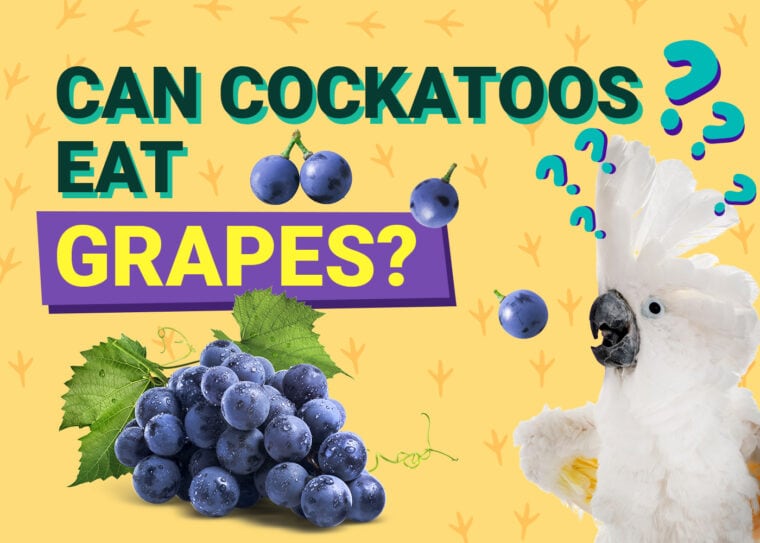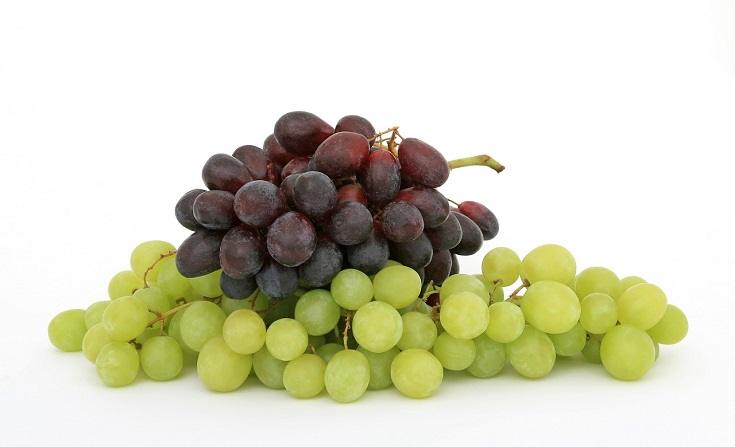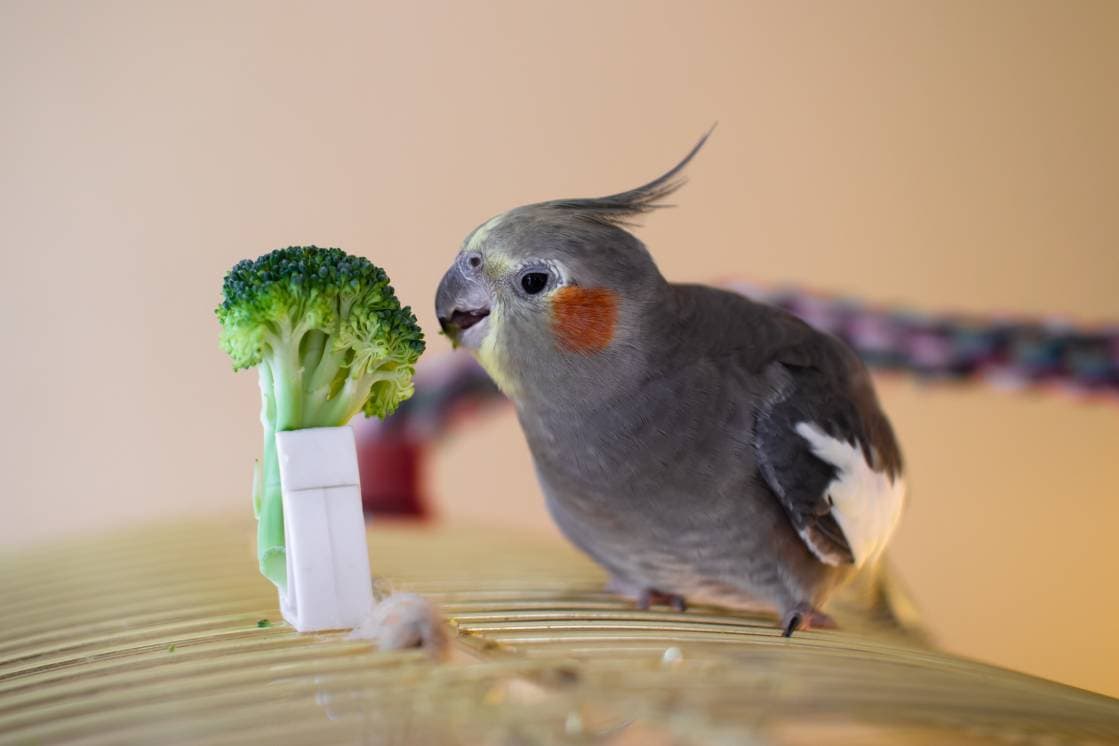
Cockatoos require a wide variety of different foods to thrive. They primarily need to be fed their pelleted food. However, they do require a decent amount of fresh food in their diet, including grapes.
Unlike some other animals, cockatoos can safely eat grapes. Cats and dogs cannot, for example. But grapes are non-toxic to birds and a nutritious option for cockatoos.
Still, grapes shouldn’t be the only things that your cockatoo eats or that take up a sizeable percentage of their diet. Like humans, these birds thrive off of various foods, as these contain different nutrients. Grapes are healthy, but they contain few nutrients, not everything that your bird needs to thrive.
Here, we cover everything that you need to consider when feeding grapes to your cockatoo. It isn’t that complicated, but there are a few essentials to consider before taking doing so.
What Grapes Can Cockatoos Eat?
For the most part, cockatoos can eat just about any grape, including seedless and seeded varieties. The seeds are not toxic to the birds, and many enjoy picking them out. The color doesn’t matter either.
The only grapes that you shouldn’t offer to your bird are canned and processed varieties. Don’t give your bird grapes from a fruit cup either, as these often have added sugar and dyes.
Canned grapes can have a similar problem. While they are soft and easy to eat, they usually have added syrups. These increase the sugar content of the grapes and make them inappropriate for birds. Extra preservatives and other ingredients may be included as well.
A bit of sugar won’t hurt us humans, but our birds are much smaller. Therefore, even a little extra sugar can mess up their diet. Sugar doesn’t include any necessary nutrients. For this reason, birds that eat excess sugar may not consume all the nutrients that they need. They may fill up on sugar instead.
Preservatives aren’t a problem for us, but they can be a bit much for our feathered friends. For the most part, these birds won’t have an adverse reaction. However, certain additives are toxic to birds, and some of them may be found in certain fruit cocktails.
Therefore, your goal should be to feed plain grapes to your bird. If the can says anything else, don’t get it for your bird. Typically, fresh grapes are excellent, since nothing else is clearly added to them.

How to Prepare Grapes for Cockatoos
Technically, you can hand grapes to cockatoos, and they will be just fine. However, many prefer you to cut them in half, as this makes them easier to eat. Otherwise, some birds may have difficulty getting through the skin, especially as the grape rolls around. You’ll likely need to see which way your bird prefers. Some don’t mind them not being cut.
You should thoroughly wash grapes before giving them to your cockatoo. In many cases, grapes will include pesticides. Since you don’t skin or peel grapes, these elements will remain on the surface until you wash them off.
We usually don’t have reactions to the pesticides on grapes, but cockatoos are much smaller and may be particularly sensitive to certain pesticides. When in doubt, find fruit from a source that you know doesn’t use pesticides. Depending on your area, you may be able to find some grown locally.
What to Feed Alongside Grapes
Pellets should make up the majority of a cockatoo’s diet. These are formulated with their specific nutritional needs in mind and provide the extra nutrition that they need to thrive.
May cockatoos don’t like pellets that much, though, especially if they aren’t used to eating them. In these cases, we recommend slowly working on switching your cockatoo to a pellet-based diet. It is simply better for them.
That said, we generally don’t recommend feeding only pellets either. About 25% of a bird’s diet should contain fresh fruits and veggies, like grapes.
Grapes should only make up a small part of this percentage, though. You should work to vary your bird’s diet as much as possible, which means feeding other things alongside grapes. Grapes can be good to offer a few times a week, but they shouldn’t make up a significant portion of a bird’s diet.

You should always aim to have different things at each meal. This promotes a varied diet. When you offer grapes, avoid other fruits exactly like grapes. Berries are ideal because they include a variety of different nutrients. Despite their sugar content, berries are extremely healthy.
Cauliflower and similar veggies are also good options. For instance, kale is hugely different from grapes in terms of nutrients, taste, and texture. Your bird is more likely to eat a varied diet if you aim to make each meal include different foods.
You don’t have to lay out a buffet each time, but aim to have at least two different fresh foods every time you offer them to your bird. If there’s only one thing, your bird may overeat (if they like it) or eat too little (if they don’t like it).
Can Grapes Kill Cockatoos?
No, there is nothing toxic in grapes, so birds can eat them in moderate amounts.
However, too many grapes can lead to obesity and nutritional deficiencies. These problems typically only occur when you feed a large number of grapes over a short period of time. You don’t want to feed your cockatoo a diet of 25% grapes for years at a time. That isn’t healthy.
But a handful of grapes a week isn’t going to harm your bird, especially when paired with other options. You should choose to offer your bird at least one type of fruit a day. Don’t always choose grapes, though.
Outright, grapes cannot kill cockatoos. But if fed incorrectly, they may lead to health problems down the line.

Do Cockatoos Like Grapes?
Yes, cockatoos typically love grapes. They have high sugar content, which makes them palatable. However, that doesn’t mean you should only feed grapes to your cockatoo. Just because they love them doesn’t mean they can live off of them.
Grapes should only be provided in moderation. That said, some cockatoos like grapes too much. They may pick grapes out and avoid other foods if you provide them all the time. Therefore, we only recommend offers them a few times a week.
Grapes should be completely absent from some meals so your bird will choose to eat other things. Otherwise, they may pick out the parts that they want and leave everything else alone—or throw it around their cage.
Not all birds have this problem, but cockatoos are notorious selective eaters. That’s one reason that we recommend varying their diet as much as possible. It prevents them from becoming set on one specific food and refusing to eat anything else.
Conclusion
Grapes can be a healthy snack for cockatoos—in moderation. They are high in various nutrients and can be given alongside a mostly pelleted diet.
Grapes should never make up the majority or even a sizeable percentage of a cockatoo’s diet, though. They are high in sugar and can lead to obesity. They don’t include all the nutrients that a bird needs, though they can benefit from having a few grapes in their diet.
Many cockatoos have problems with selective eating, where they pick out the foods they like and leave the foods they don’t. This is a common problem with grapes, as the high sugar content often means that these birds enjoy grapes over other foods.
Therefore, don’t provide them at every meal. Your cockatoo might start demanding grapes. Once or twice a week is good, and grapes should be always served alongside another fruit or veggie.
Have you ever wondered:
- Can Cockatoos Eat Carrots? What You Need to Know!
- Can Cockatoos Eat Strawberries? What You Need to Know!
Featured Image Credit: NickyPe, Pixabay








